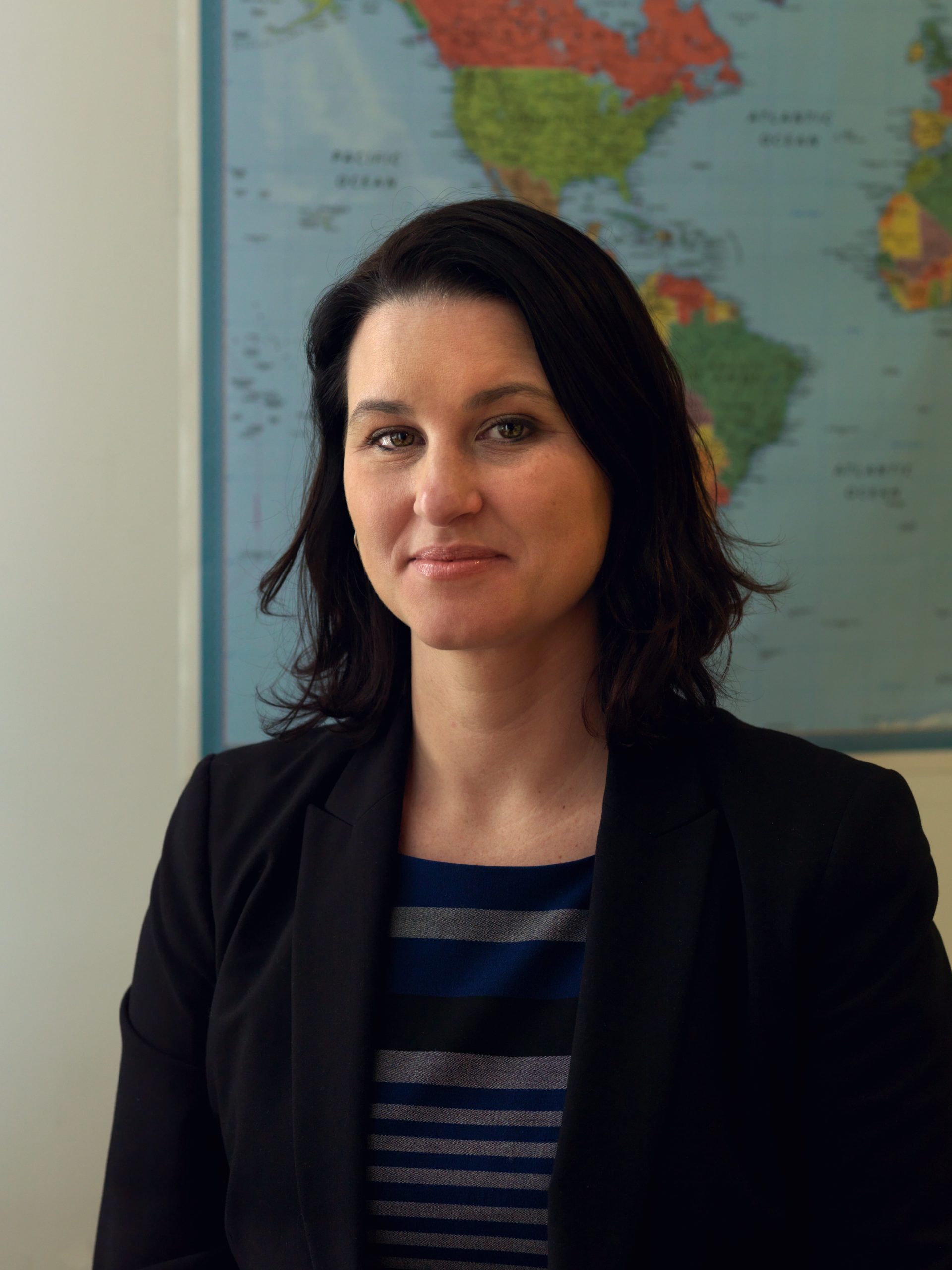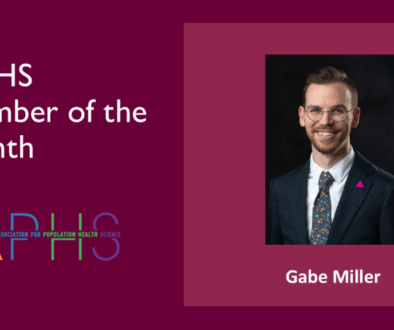The World Is Your Oyster: Advice for PhD Students Considering Non-Academic Jobs
Tia Palermo, Thoai Ngo, Valerie Mueller, Amber PetermanAre you a Ph.D. student considering options outside of academia? If so, you’re not alone, as private companies and non-profits now employ as many PhDs as educational institutions.
We have worked in interdisciplinary, research-focused positions in the social and health sciences both within and outside of academia, and we’re frequently asked by Ph.D. students about the non-academic market. Here we share our thoughts.
Research in action
If what motivates you is “being closer to the action” (e.g., evaluating on-the-ground service delivery or policies and program change), the private sector may be attractive to you. Amanda Kalamar at PSI told us, “I don’t always have the opportunity/funding to publish as much as I’d like but, at an implementing organization, where my research often goes right into practice, I feel the relevance and reach of my work more intensely.”
Think tanks and agencies in the public sector have paved the landscape for researchers to explore interesting questions that have direct application to real-world change. Additionally, many government agencies have in-house research groups to provide practical information for policymakers and maintain quality control over outsourced studies. The mission-specific focus of such projects often brings together researchers with complementary skills and topical expertise. While this work can be exciting and motivating, the flip side is often limited freedom to focus on research topics outside the mission of a particular organization. If affecting policy change and applied work will maintain your excitement and engagement each day, then a non-academic environment may be a good fit.
Geography
Places like Atlanta, New York, Raleigh-Durham, San Francisco, Seattle, and Washington D.C. often have multiple research institutes and consulting firms. You could choose a city you’d like to live in, and look for non-academic jobs there. In contrast, the academic market is more constrained: you may apply to many places and have to go where the job offer is.
However, geographic centers with many non-academic jobs also tend to be among the most expensive places to live, with higher costs of living and longer commutes. These costs may be balanced by more flexibility around remote working and opportunities to move locations, even overseas over time, with little red tape. This can be rewarding for professional growth and family happiness. If geography is important to you, be sure to discuss this in the context of the hiring processes.
Job security
Job security is less certain in non-academic settings than post-tenure positions in academia. Additionally, project funding in non-academic settings has become much more competitive. Candidates are frequently hired based on the availability of funding for a project, often with contract renewal at set intervals. If project funding ends, and no additional funds are raised to continue the post, jobs might be lost. This business model of moving from one project to the next, with a new topic of focus, may be exciting for some. However, it might not be suitable for those who want to build a narrower long-term body of research. While most organizations hire to retain talented researchers who are passionate about their mission, burnout is real. Do your own research and ask questions about turnover rate, the organization’s funding model (revenue streams), and how they ensure job stability.
Expectations for fundraising
Whether in academia or outside, unless you are working in government or a foundation, you will probably be on a constant fundraising treadmill, either for your salary, research activities, or both. Research institutes or consulting companies will likely expect you to bring in funding for your salary extensions (and perhaps support staff including research assistants and postdocs), particularly once you become more senior. However, administrative support or fundraising departments often assist you. In addition, non-academic organizations often have longstanding relationships with funders who may be willing to renew sources of support for new projects in their thematic area of interest.
Non-academic organizations may also be part of large funding initiatives through research consortia, where researchers network, build new work streams, and leverage funding opportunities. In addition, through meetings and events, you may have more direct access to funders who may be open to new areas or streams of funding. In contrast, in academia, you often have to make a name for yourself through the publication process to secure funding independently through the National Institutes of Health or the National Science Foundation. Be sure to ask about fundraising expectations for the job, what resources already exist, and who’s responsible for bringing in salary and research funding.
Where to look and how to secure a non-academic job
Do not limit yourself to your specific field of study (e.g., epidemiology, economics, etc.). There are many jobs spanning the sciences and social sciences that need general data science skills. Join more than one professional organization to gain access to the job boards, and sign up for listservs organized by members of these professional organizations to find job postings at the postdoctoral associate level and above. Interdisciplinary organizations are also a good place to find advertisements for non-academic positions.
Once you secure an interview, explain why you are a good fit for that particular organization and be able to explain what you do to non-academics. Megan O’Donnell from the Center for Global Development recommends that candidates “hone ‘translation’ skills: Practice speaking in succinct, digestible language — and lead with why your work (or general skill set) matters/what tangible impact it can have.”
Because non-academic jobs are generally more team-oriented, remember to assess your own fit in each team or institute. Do not overlook the value of happy, smart, and supportive colleagues. Talk to current and past team members who can give you a feel for these dimensions.
Salaries
The Chronicle of Higher Education provides average salary information for academic jobs by rank and type of institution. Non-academic jobs may be more likely to post salary ranges in their job advertisements, or have available information via Glassdoor and other salary comparison sites. Additionally, some organizations, like the United Nations and the US government, have strict guidance on salary based on degrees and years of experience. It’s OK to ask about salary during the application process. Consider trade-offs, including benefits, flexibility, and cost of living.
Greater benefits may compensate for lower salaries. Some government agencies or think tanks allow for more flexible schedules, and government jobs often subsidize public transportation and have generous retirement benefits. Health insurance, parental leave, sick leave, and vacation are not necessarily generous in the private sector. Some of these benefits accrue with tenure. U.S. universities (if you are on a 9 or 10-month contract) and international organizations tend to provide more vacation time. Realistically, though, with the pressures to publish and fundraise, few junior academics can take advantage of much downtime for vacation. Find out what compensation features are more important to you, and do not under-value the role of negotiation, especially for women!
Other considerations: The non-academic skill set
PhD programs generally do not prepare students for some responsibilities they will face in the non-academic world, including project management, staff supervision, and communication with policymakers. These activities will consume a lot of your time in a non-academic setting and can be difficult to learn on the job. In particular, staff management is critical outside of academia. Additional training can help.
Communication skills are important. You will need face time with your colleagues or clients to discuss the work, especially when the work spans cultural and disciplinary boundaries. Similarly, you need communication skills to reach stakeholders with key messages and to explain the research process – for example, can you explain why you need certain methods, and what the data you collect will be able to tell you–and what it won’t be able to tell you?
Publishing and advancing
In academia, fields have varying expectations for the quantity of annual publications in peer-reviewed journals, but they all expect you to continuously publish. In non-academic settings, advancement may still be tied to publication; however, these requirements will vary widely, and you will have less dedicated time for writing papers. Instead, more time is typically dedicated to writing reports, policy briefs, and providing technical assistance to colleagues or stakeholders. However, if you want to move back and forth between academia and non-academic jobs, make time (including in your free time) to publish in peer-reviewed journals to stay marketable. A hiatus from teaching or securing funding can be explained, but a hiatus from publishing will be much more difficult to overcome on the academic market. Ask a potential employer about publication expectations and how they’re tied to promotion and advancement, and what support they offer.
What to do while you’re still in graduate school
To make yourself marketable for non-academic jobs:
- Write a “data-based” dissertation–qualitative, quantitative, or mixed. Research-focused jobs seek talented individuals who can analyze data critically. Learn how to design studies and collect data, even if you’re in a research assistant role and not necessarily collecting your own data. Organizations often prefer job candidates who have concrete data collection experience.
- Take courses where you learn new methods. In non-academic settings, your knowledge and ability to use data analysis methods will be marketable.
- Join professional organizations and start networking. Many of these offer discounts to graduate students, and they are a great opportunity to learn who is active in your field. At conferences and workshops, you can interact directly with these individuals, and they may be key in learning about new opportunities. You may also meet other graduate students with similar areas of interest, and these might become great collaborators in the future.
- Read reports from institutions you’re interested in working for, and get to know how policy and programming works in your field of interest.
- Seek out post-doc opportunities at research institutions, including places like Population Council, Center for Global Development, and the International Food Policy Research Institute (IFPRI).
- Ask your advisors and their peers for help. They may be able to direct you to people they may know in your desired places of employment
Concluding thoughts
The good news is that PhDs are graduating with more choices both within and outside of academia than they had two decades ago. Further, it is possible to move back and forth between academic and non-academic jobs–the keys are publishing, fundraising, and collaborating.
The bottom line: many options await for you to apply research skills in today’s world. Considering the pros and cons takes some exploration, but putting in the time to do this can guide you to the intersection of what you love, what makes you happy, and what is best for your family. Don’t let outside pressures make the decision for you.









All comments will be reviewed and posted if substantive and of general interest to IAPHS readers.